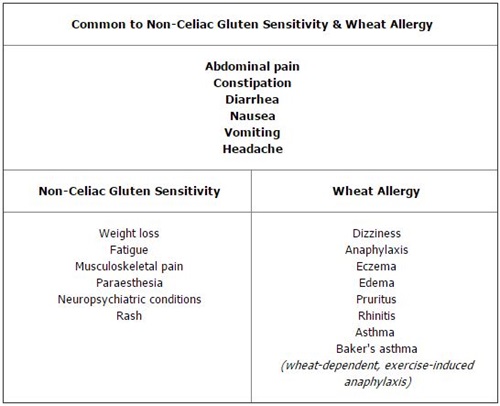
What is a gluten allergy anyway?
Celiac disease is an autoimmune disease in which the patient's immune system destroys the villi of the small intestine, which are responsible for the absorption of gluten, a protein found in wheat, barley and rye.
Symptoms of celiac disease include chronic diarrhea, abdominal pain, bloating, vomiting, cramps, skin rashes, fatigue, anemia, and hair loss. Learn more about ปวดท้องข้างซ้าย บน iHealzy. The disease is incurable, but some of the symptoms can be managed with diet and some anti-inflammatory drugs.
Some people may develop a gluten allergy after celiac disease. If you are an adult diagnosed with celiac disease, you should first check with your doctor before trying any type of therapy. If you are suffering from symptoms, you should immediately switch to a gluten-free diet to avoid further complications.
Usually a gluten allergy has no known cause; however, some doctors believe that there could be an allergic reaction to certain proteins found in wheat, barley or rye. These proteins are called allergenic peptides, and they are produced in the digestive tract when the body absorbs gluten.
Because your immune system cannot distinguish the protein from its surroundings, it releases chemicals called antibodies. This results in the immune system attacking and destroying the body's own cells, including villi and lymph nodes.
In some people, the symptoms of celiac disease may be so severe that the body's ability to absorb nutrients from food and utilize nutrients from the food is compromised. This results in malnutrition, poor growth and anemia. However, most patients who suffer from celiac disease can still function normally and lead a normal life.
The body has antibodies and other substances called immunoglobulin, which help it fight diseases, but when they attack your immune system you become sick and even die if they attack your cells. Celiac disease can lead to cancer if the immune system is destroyed in the wrong way.
The first thing to do when you suspect that you might have an allergy is to see your doctor. He or she will test you to make sure you don't have allergies to foods, but will perform a blood test for antibodies to confirm the diagnosis. You may need to take a specific test that measures the levels of the immune system chemicals in your blood. This allows your doctor to determine the amount of gluten and other allergenic peptides in your body.

Once diagnosed, you should start on a gluten free diet as soon as possible
There are many different ways you can go about this, but you will need to start slowly. You will not need to cut out everything with gluten in it – just wheat products, rice, corn and rye.
If you eat certain foods, you may want to avoid them all at once, especially if you have been diagnosed. with celiac disease, because it can make it difficult to follow the gluten-free diet.
It is important to note that you can still eat wheat, rye and corn without any issues as long as you do not eat other foods with gluten, rice or corn. This is referred to as a "gluten-free" diet.
To be on a healthy diet, you must take an all-enzyme supplement to increase the production of glutathione. This substance helps your body's immune system to neutralize the harmful chemicals that destroy it. Glutathione also helps the body to absorb all the vitamins and minerals needed.
If you want to avoid gluten allergen, your doctor may prescribe you an anti-fungal, anti-bodies or anti-histamine. These can help lessen the symptoms of your gluten allergy.
When choosing foods to avoid, try to stay away from foods such as pastas, pasta sauces, breads, cookies and cakes made from wheat. You can also avoid soy sauce, canned vegetables, cheese and other foods with wheat as an ingredient.
Another thing to consider if you suspect that you have a gluten allergy is making changes to your diet. For example, most gluten free desserts are made from ingredients like fruits and vegetables.
Gluten free food can be difficult to find, but it can be found. If you know someone who has celiac disease or has found relief from their symptoms, you can recommend them to get started on a gluten free diet.
Leave a Reply